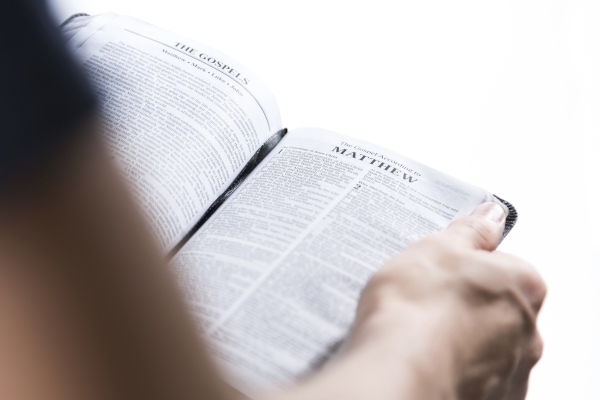History deserves honest retelling
I've just returned from my youngest son's Rite of Passage, something his brothers also went through at his age. It's a curriculum I've developed — teachings, rituals and ceremonies — for turning boys into men.
During the Rite, my boy inquired more deeply about his family. And this time my answers were complete. I told him the truth. Including the truth about his father. Because you can't know who you are unless you know who your people are.
I spoke to him of lasting bonds of love. Of family fidelity, celebrations and joy. Of endurance through hardships and loss. Of values and character. Of forgiveness and reconciliation.
But … I also told him stories of moral failure. Stories of injustice, sin, estrangements, alcoholism, suicide, divorce and mistreatment of children.
Because, in every individual, every marriage, every family and every nation, the story contains both good and bad. Light and dark. Wholeness and brokenness.
He said he felt good about knowing a more complete story. Like all initiates, he had passed through the veil of the unspoken. Now, it was spoken.
A New York Times story by Katharine Q. Seelye catches my eye. Probably because it's about the Episcopal Church. And I'm an Episcopalian. This is my family, too.
The Episcopal Diocese of Rhode Island is opening a museum and "reconciliation center" to tell its story of … grievous sin.
Yes, you read that right. Most museums are a people's pageantry of art, skills, inventions, values, nobility and honor. But this museum dares to present its people's admitted darkness and dereliction. Wow.
Seelye writes:
"One of the darkest chapters of Rhode Island history involved the state's pre-eminence in the slave trade, beginning in the 1700s. More than half of the slaving voyages from the United States left from ports in Providence, Newport and Bristol — so many, and so contrary to the popular image of slavery as primarily a scourge of the South, that Rhode Island has been called 'the Deep North.' ...
"Many of the shipbuilders, captains and financiers of those slaving voyages were Episcopalians. The church, like many others in its day, supported slavery and profited from it even after the trans-Atlantic slave trade was outlawed and slavery had been banned in the state. Among the most notable Episcopalian slaveholders were Thomas Jefferson, who was active for some time in the church, and George Washington."
A history buff and an Episcopalian, I had never heard this story. And, like my boy, I felt good about the knowing. And filled with a deep admiration for belonging to a family that can and will tell the whole of truth.
When I was growing up in the church, my favorite Bible passage to hate and ridicule was Matthew 1. There are four Gospels, but only in Matthew do you read a long, patriarchal genealogy beginning with Abraham and ending with Jesus. I thought the word "begat" was funny. Almost euphemistic. But mostly I thought it was boring.
But you can't know who you are unless you know who your people are. On that list are the heroes, the icons of Judeo-Christian faith and virtue. But also on that list are several metric tons of ego, folly and sordid sin. Light and dark. Dance partners, forever.
A leader in the Rhode Island museum is James DeWolf Perry VI. He is the co-editor of the book "Interpreting Slavery at Museums and Historic Sites." Seelye reports he is "a direct descendant of the most prolific slave-trading family in the United States."
"I want my child to remember our family history, both good and bad," he says. "I think this is how we need to approach our shared history as a nation, too."
I'm right there with you, James. We don't whine about the past. We don't wallow in it. But we own it! We acknowledge it and account for it. Only then can we weave it into the tapestry of a whole and authentic life.
As a child, I think I lost count of the number of times my father rolled his eyes and said, sarcastically, "I've never owned a slave." Though I could not have put it into words, I think I knew by the time I was 8 this utterance, while technically accurate, was a dodge from the deeper, more rigorous and more rewarding work of being human.
You can't know who you are until you know who your people are. What we don't talk out we are doomed to act out.
The sins of the fathers are visited unto the third and fourth generation (Exodus 34). The virtues are, too.
— Steven Kalas is a behavioral health consultant and counselor at Las Vegas Psychiatry and the author of "Human Matters: Wise and Witty Counsel on Relationships, Parenting, Grief and Doing the Right Thing" (Stephens Press). His column appears on Mondays. Contact him at 702-227-4165 or skalas@reviewjournal.com.














